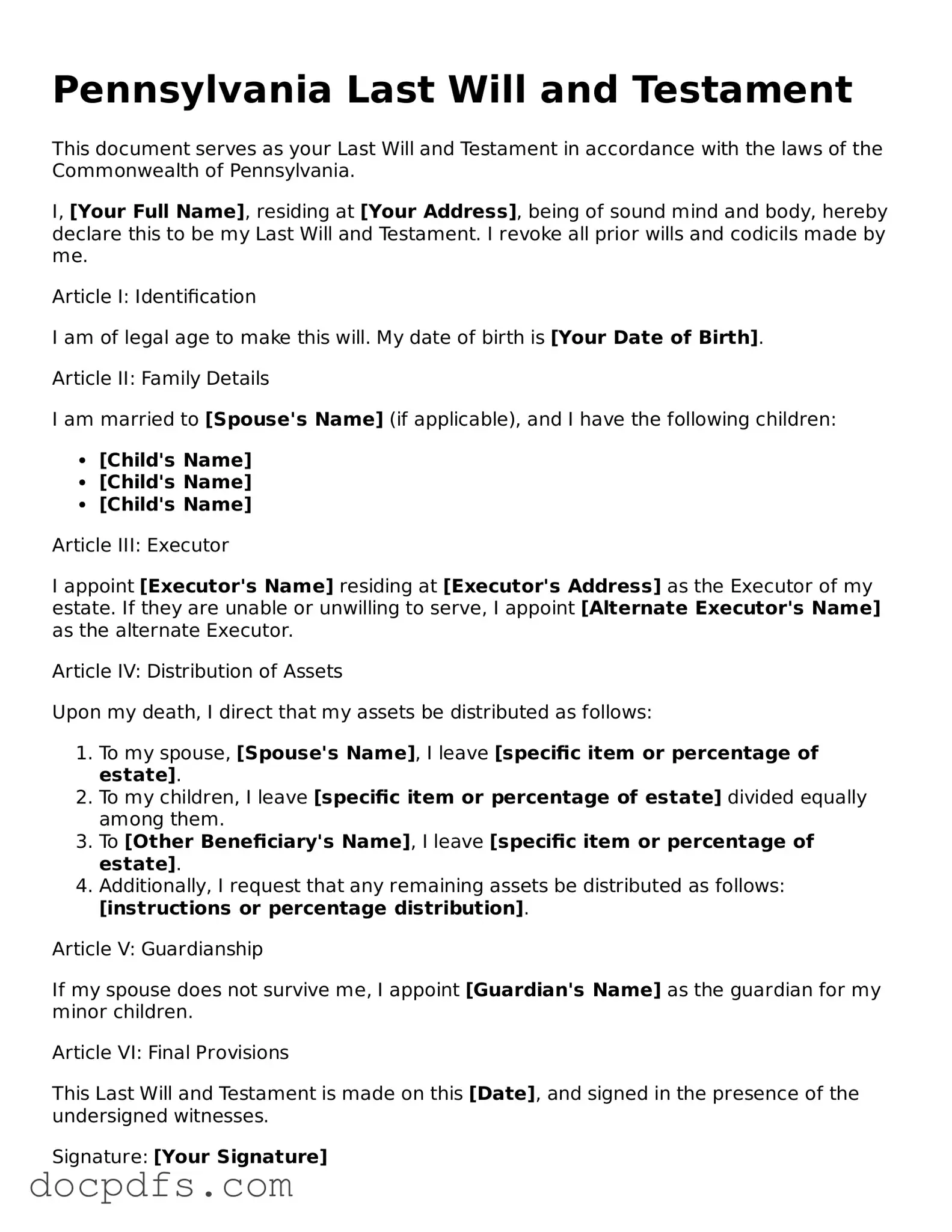What is a Last Will and Testament in Pennsylvania?
A Last Will and Testament is a legal document that outlines how a person's assets and affairs should be handled after their death. In Pennsylvania, this document specifies who will inherit property, appoints guardians for minor children, and can even name an executor to manage the estate. It ensures that your wishes are followed and can help prevent disputes among family members.
Who can create a Last Will and Testament in Pennsylvania?
In Pennsylvania, any adult who is at least 18 years old and of sound mind can create a Last Will and Testament. This means you should understand the implications of your decisions regarding your assets and beneficiaries. It’s important to consider your unique situation when drafting your will.
Do I need a lawyer to create a Last Will and Testament in Pennsylvania?
No, you do not necessarily need a lawyer to create a Last Will and Testament in Pennsylvania. While having legal assistance can help ensure that your will is valid and meets all legal requirements, you can also use templates or forms available online. However, if your estate is complex or if you have specific concerns, consulting a lawyer may be beneficial.
What are the requirements for a valid will in Pennsylvania?
To be considered valid in Pennsylvania, a Last Will and Testament must meet the following criteria:
-
The will must be in writing.
-
The person creating the will must sign it or have someone else sign it in their presence and at their direction.
-
The will must be witnessed by at least two individuals who are present at the same time.
It’s important to note that witnesses should not be beneficiaries of the will to avoid potential conflicts of interest.
Can I change or revoke my Last Will and Testament?
Yes, you can change or revoke your Last Will and Testament at any time while you are still alive. To make changes, you can either create a new will that explicitly revokes the old one or make amendments through a codicil. Be sure to follow the same legal requirements for signing and witnessing as you did with the original will.
What happens if I die without a will in Pennsylvania?
If you die without a will, your estate will be distributed according to Pennsylvania's intestacy laws. This means that your assets will be allocated based on a predetermined order of heirs, which may not align with your wishes. It can lead to complications and disputes among family members, making it crucial to have a will in place.
How do I ensure my Last Will and Testament is properly executed?
To ensure that your Last Will and Testament is executed properly, consider the following steps:
-
Keep the original will in a safe place, such as a safe deposit box or with a trusted attorney.
-
Inform your executor and family members about the location of your will.
-
Review and update your will regularly, especially after major life events like marriage, divorce, or the birth of children.
By taking these steps, you can help ensure that your wishes are honored and that your estate is handled according to your preferences.

